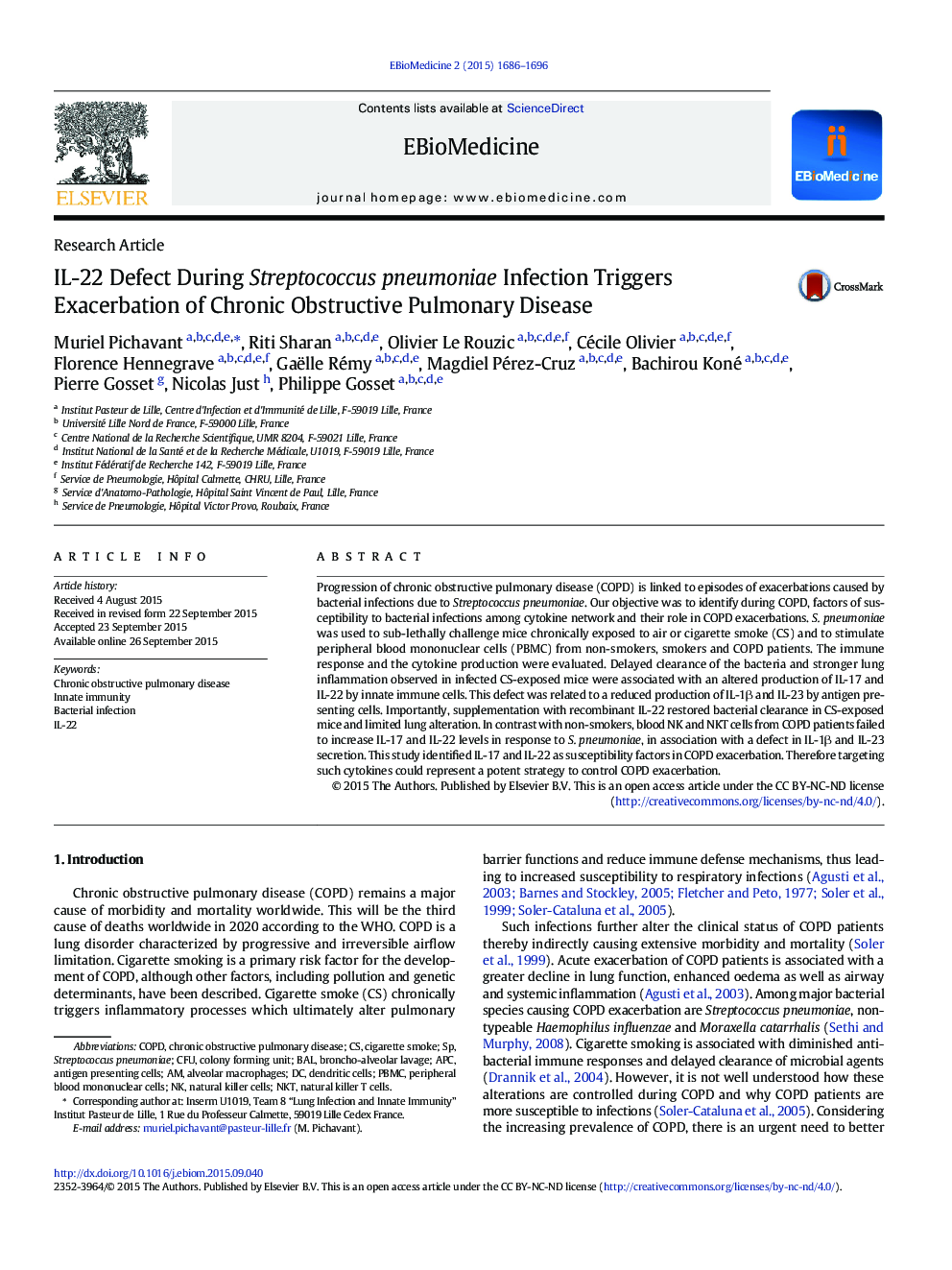| کد مقاله | کد نشریه | سال انتشار | مقاله انگلیسی | نسخه تمام متن |
|---|---|---|---|---|
| 2121002 | 1085766 | 2015 | 11 صفحه PDF | دانلود رایگان |

• Increased bacterial susceptibility during COPD is related to a defect in Th17 cytokines.
• Cigarette smoke alters the production of immunoregulatory cytokines by lung APC.
• Immunotherapy restoring the defective IL-22 response could represent an ideal therapy to prevent exacerbation in COPD patients.The progression of chronic obstructive pulmonary disease (COPD) is linked to episodes of exacerbations mostly due to bacterial infections. It is not well understood why COPD patients are more susceptible to infections. In our experimental model of COPD as well as in COPD patients, we identified a defect in the IL-17/IL-22 response to S. pneumoniae, leading to the bacterial outgrowth. This was mainly due to the alteration of lung antigen-presenting cells by cigarette smoke. Restoring the defective IL-22 response represents a promising therapeutic approach for the treatment and/or the prevention of COPD exacerbations.
Progression of chronic obstructive pulmonary disease (COPD) is linked to episodes of exacerbations caused by bacterial infections due to Streptococcus pneumoniae. Our objective was to identify during COPD, factors of susceptibility to bacterial infections among cytokine network and their role in COPD exacerbations. S. pneumoniae was used to sub-lethally challenge mice chronically exposed to air or cigarette smoke (CS) and to stimulate peripheral blood mononuclear cells (PBMC) from non-smokers, smokers and COPD patients. The immune response and the cytokine production were evaluated. Delayed clearance of the bacteria and stronger lung inflammation observed in infected CS-exposed mice were associated with an altered production of IL-17 and IL-22 by innate immune cells. This defect was related to a reduced production of IL-1β and IL-23 by antigen presenting cells. Importantly, supplementation with recombinant IL-22 restored bacterial clearance in CS-exposed mice and limited lung alteration. In contrast with non-smokers, blood NK and NKT cells from COPD patients failed to increase IL-17 and IL-22 levels in response to S. pneumoniae, in association with a defect in IL-1β and IL-23 secretion. This study identified IL-17 and IL-22 as susceptibility factors in COPD exacerbation. Therefore targeting such cytokines could represent a potent strategy to control COPD exacerbation.
Journal: EBioMedicine - Volume 2, Issue 11, November 2015, Pages 1686–1696